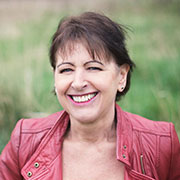Question
Children's Learning & DevelopmentI have a new-born but my family members speak different languages to her. Will she be confused? When should I start preparing my baby for language skills?
What the Expert Says

By Dr Lin Day
Founder of Baby Sensory
PhD, Masters in Philosophy, Bachelor in Science, Diploma in Education, PGCE
Leading Parenting Expert and Renowned Author with over 35 years of practical experience
In our multicultural society, being fluent in at least two languages is a valuable asset. The acquisition of speech and language are complex life skills and yet babies understand words and whole sentences long before they can speak.
Babies below the age of 10 months can Decode Different Languages
The extraordinary thing is that babies up to the age of ten months have the capacity to learn several languages. Before ten months old, babies have no difficulty picking up different speech sounds in the entire range of human languages. They can decode another language based on the rhythms, stresses and intonations of their own language and they can even differentiate between the individual sounds of another language, which adults cannot.
Sounds your child hears will be Permanently Imprinted
The language pathways for speech development grow most rapidly in the first few years of life. During this sensitive period, the brain acts like a giant cabinet, storing a library of knowledge known as a phonetic inventory. The sounds your child hears become permanently imprinted on her brain. Some children who grow up in bilingual households may sometimes delay in fluent speech initially, but eventually bounce from one language to another with ease. Therefore, the earlier babies are exposed to different languages, the easier it is to learn them!
How Parents can help Babies Develop Speech and Bilingual Skills?
- The OPOL approach (One Parent, One Language)It’s easier for your child’s brain to sort out both languages if each of you consistently speak your own native tongue or in one particular language. For example, Mummy might speak only in Mandarin while Daddy speaks only in English. A child learns a language not only by the sounds she hears, but by the facial gestures and body language accompanying these sounds. You can talk to your baby during daily routine activities using simple speech that babies can imitate or sing to them in your choice of language to introduce new words, as well as encourage listening skills.
- Try the minority language at homeYour child will likely become fluent in both languages between the age of 3 and 4. At this point, speak the minority language (eg: Malay) at home and the community language (English) outdoors. This way your child will be continually exposed to both. If you find it easier to speak only English at home, don’t worry: Those language pathways for the minority language will be so imprinted in your child’s brain that she’ll easily recall them later on.
- Give your child a bilingual environmentExpose your little language learner to friends and relatives of both cultures. Sing songs, rhymes and visit places in your community that help your child learn the richness of your different cultures, and not just to the words. Enlist the help of grandparents. Have them speak with your baby from birth to create that rich multi-cultural environment. Include art, dance and even cookery to bring life to the written and spoken language as your baby grows.
More Expert Opinions
What is the right age to learn the harp?
Music for Young Children
What is the right age to learn the harp?

What music should I play to help my new-born develop music interest?
Music for Young Children
I let my new-born listen to nursery rhymes everyday. What other music should I play to help him develop music interest?

Toddler uninterested in feeding herself
Children's Diet and Nutrition
My two-year-old toddler seems to be completely uninterested in feeding herself. She will only eat if we spoon feed every single mouthful to her. She will only feed herself unhealthy snacks which we don’t want to give to her. What can I do to encourage her to self-feed?



Give your Opinions